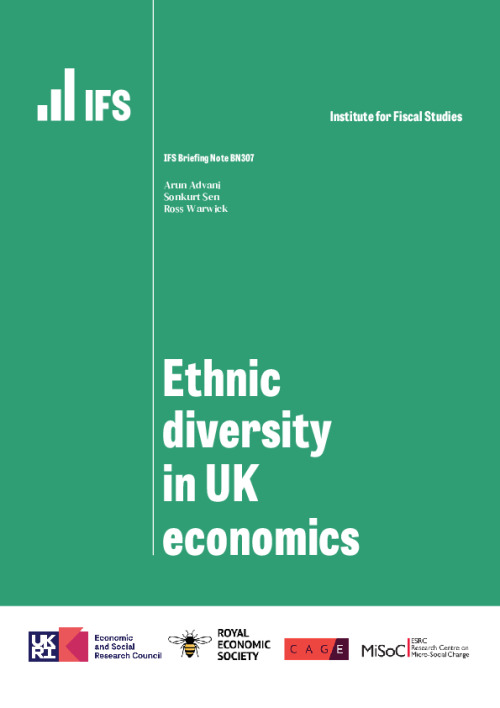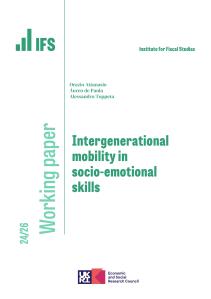Economists are central to policymaking in the UK, and to providing the research that underpins that policymaking. Despite having this important role in society, economists are not very representative of society, with a well-documented under-representation of women in the profession.
In this briefing note, we examine the ethnic diversity of academic economists who provide much of the research that ultimately feeds into policymaking. We use data from the Higher Education Statistics Agency (HESA) to look at which groups are more or less well represented as academic economic researchers. We then examine economics students, to understand both the source of current under-representation and the prospects for change. Finally, we study some of the barriers faced by economics students. We are not able to examine diversity among the large number of economists who work outside academia, due to a lack of data. Our key findings are as follows.
Key findings
1. Ethnic diversity among academic economists is increasing over time. The share of (non-White) ethnic minority academic economists doing research and teaching has increased from 19% in 2012–13 to 24% in 2018–19. This is higher than in UK academia generally (17% in 2018–19) and in the UK population (13% among individuals aged 25–64 as of 2011).
2. However, there are large differences in representation across different ethnic groups. Individuals of Chinese and Indian ethnicity are heavily over-represented, while Black individuals are under-represented relative to their share of the UK population. This reflects a broader pattern within the academic sector in the UK.
3. These differences are even larger when focusing on the most research-intensive (Russell Group) universities, again mirroring a pattern across academia more generally. While 50% of White academic economists work in Russell Group universities, less than 30% of Pakistani and Bangladeshi academic economists do so, and less than 20% of Black academic economists do so. Ethnic minority economists who do work in Russell Group universities are 45% less likely to hold a professorial or managerial level job, compared with their White counterparts.
4. Ethnic diversity among economics students is greater than other Social Sciences and STEM fields, and is increasing: since 2012, the share of non-White students among British economics undergraduates has increased by 4 percentage points.
5. Among current undergraduates, around 20–25% of students with an economics A Level study economics depending on ethnicity, compared with 0.6–1.5% of those without A Level economics. Differential take-up at A Level is a key factor in the economics pipeline.
6. Ethnic minority students are less likely to study at Russell Group universities. While nearly 50% of White students study in Russell Group universities, less than 20% of Black students (and less than 25% of Pakistani and Bangladeshi students) do so, again paralleling patterns for staff. This creates an additional barrier to progression into academia.
7. There are large and persistent ‘attainment gaps’ between White and ethnic minority economics students: ethnic minority students are 7 percentage points less likely to get at least an upper second class honours degree and 11 percentage points less likely to get a first class honours degree. These gaps are wider than in 2012–13.
8. Looking at the student experience in searching for jobs, Government Economic Service recruitment data show that at every stage of the application process, ethnic minority applicants are less likely to be successful. In 2018, of those who passed the initial online test for the Fast Stream programme, only 8% of ethnic minority candidates ended up receiving a job offer, compared with 22% of White candidates.
9. Progress in tackling the barriers faced by ethnic minority individuals who are considering a career in economics requires a better understanding of what those barriers are. Further quantitative approaches to understanding barriers to progress are limited by a lack of data: in many cases, these data are not being collected, and where collected they are not analysed or made available for analysis.











